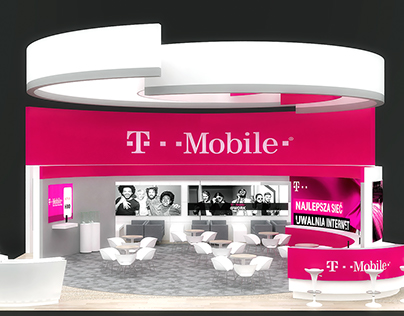The iconic magenta “T” adorning countless cell phone towers and storefronts across the nation beckons a simple question: what does T-Mobile stand for? While the answer might seem straightforward at first glance, the story behind the name delves into a rich history of mergers, acquisitions, and a global telecommunications landscape.

Beyond the Obvious: Delving Deeper than “Telecom Mobile”
A common misconception is that “T-Mobile” simply stands for “Telecom Mobile.” This assumption isn’t entirely inaccurate, but it fails to capture the complete picture. Here’s where the story truly begins:
- Deutsche Telekom:The origin story starts with Deutsche Telekom, a German telecommunications giant. Founded in 1990, Deutsche Telekom established a subsidiary named “Mobile Communications Company” (MCC) to spearhead its mobile phone network operations.
- Birth of “T-Mobile”:In 1996, Deutsche Telekom decided to rebrand its mobile network operations under a more unified and catchy name. “T-Mobile” was born, with the “T” explicitly referencing its parent company, Deutsche Telekom. The name also subtly hinted at the company’s focus on mobile technology.
- Global Expansion:The “T-Mobile” brand became a powerful force in Europe, establishing itself as a major player in the mobile phone market. It wasn’t long before Deutsche Telekom set its sights on expanding its reach beyond the European continent.
The American Chapter: Mergers and the Evolution of T-Mobile US
Across the Atlantic, the American mobile phone landscape was undergoing its own transformation. Here’s where the story gets a bit more complex:
- VoiceStream Wireless:In the United States, a company named VoiceStream Wireless emerged as a prominent player in the PCS (Personal Communications Services) market. Founded in 1994, VoiceStream offered an alternative to the dominant carriers of the time.
- Deutsche Telekom Acquires VoiceStream:In 2001, Deutsche Telekom saw an opportunity to expand its T-Mobile brand into the lucrative American market. They acquired VoiceStream Wireless for a staggering $35 billion.
- T-Mobile USA:Following the acquisition, VoiceStream was rebranded as T-Mobile USA in 2002. This marked the official entry of the T-Mobile brand into the American mobile phone market.
Beyond the Name: T-Mobile’s Brand Identity
While the origin story explains what “T-Mobile” stands for, the brand identity goes far beyond the name itself. Here’s a glimpse into what T-Mobile represents:
- The Un-carrier:T-Mobile has carved a niche for itself as the “Un-carrier” in the US market. This self-proclaimed title signifies their commitment to shaking up the industry by offering competitive pricing plans, eliminating restrictive contracts, and focusing on customer satisfaction.
- Magenta Magic:T-Mobile’s vibrant magenta color scheme has become a defining characteristic of the brand. It exudes a sense of energy, innovation, and a youthful spirit, setting it apart from the more traditional hues often used by its competitors.
- Customer Focus:T-Mobile prides itself on its customer-centric approach. They actively seek to simplify mobile phone plans, offer transparent pricing, and prioritize customer service, creating a loyal following.
The Future of T-Mobile: An Evolving Landscape
The mobile phone industry is never static, and T-Mobile continues to evolve:
- Merger with Sprint:In 2020, T-Mobile merged with its competitor, Sprint, creating a telecommunications giant poised to challenge the dominance of Verizon and AT&T.
- Continued Innovation:T-Mobile remains at the forefront of technological innovation, investing in 5G network infrastructure and exploring new technologies like advanced messaging services and mobile entertainment platforms.
- The “T” Endures:Despite the mergers and acquisitions, the iconic “T” continues to serve as a symbol of T-Mobile’s brand identity. It represents a legacy of global expansion, a commitment to challenging the status quo, and a focus on providing a customer-centric mobile experience.
Conclusion:
So, the next time you see the “T” on a cell phone tower, it signifies more than just a mobile phone carrier. It represents a rich history, a commitment to innovation, and a brand identity built on challenging the norm. While “T-Mobile” might not stand for a literal phrase, it embodies a spirit of breaking boundaries and providing a more dynamic mobile experience for its customers.
